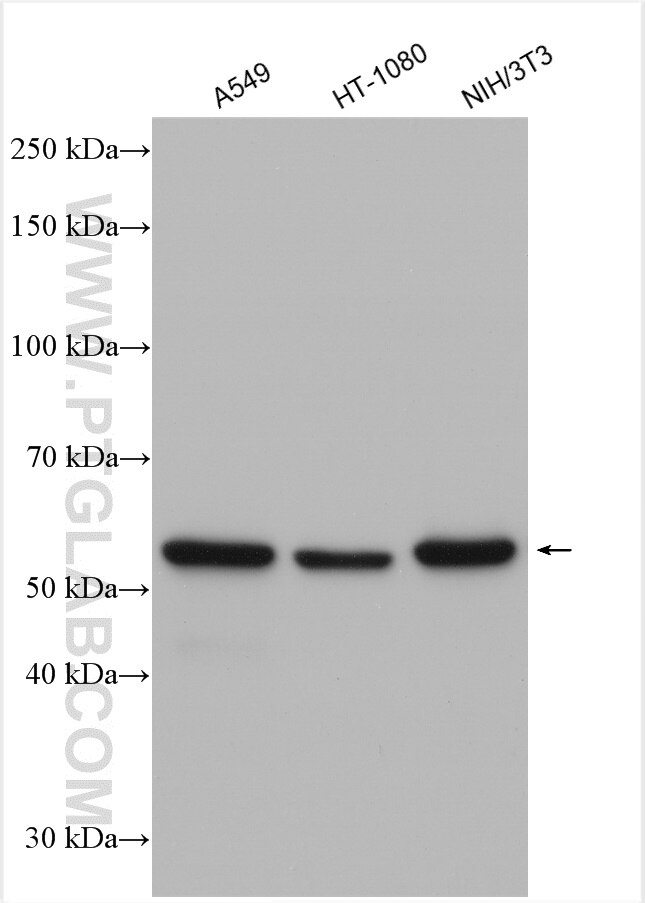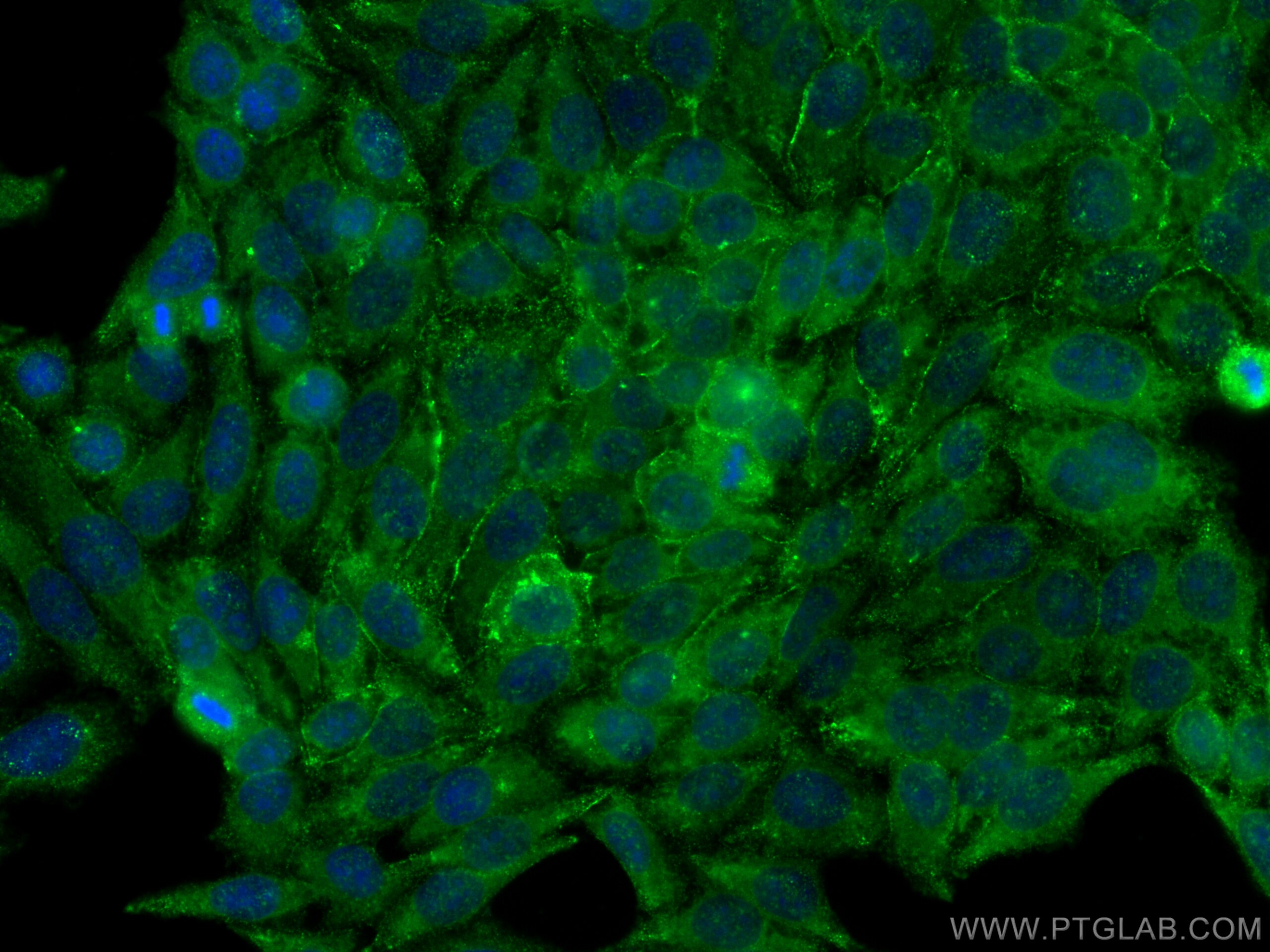PTRF Polyclonal antibody
PTRF Polyclonal Antibody for IF, WB, ELISA
Host / Isotype
Rabbit / IgG
Reactivity
Human, mouse
Applications
WB, IF, ELISA
Conjugate
Unconjugated
Cat no : 30086-1-AP
Synonyms
Validation Data Gallery
Tested Applications
| Positive WB detected in | A549 cells, HT-1080 cells, NIH/3T3 cells |
| Positive IF detected in | HepG2 cells |
Recommended dilution
| Application | Dilution |
|---|---|
| Western Blot (WB) | WB : 1:2000-1:16000 |
| Immunofluorescence (IF) | IF : 1:200-1:800 |
| Sample-dependent, check data in validation data gallery | |
Product Information
30086-1-AP targets PTRF in WB, IF, ELISA applications and shows reactivity with Human, mouse samples.
| Tested Reactivity | Human, mouse |
| Host / Isotype | Rabbit / IgG |
| Class | Polyclonal |
| Type | Antibody |
| Immunogen | PTRF fusion protein Ag32786 相同性解析による交差性が予測される生物種 |
| Full Name | polymerase I and transcript release factor |
| Calculated molecular weight | 43 kDa |
| Observed molecular weight | 55 kDa |
| GenBank accession number | BC008849 |
| Gene symbol | PTRF |
| Gene ID (NCBI) | 284119 |
| Conjugate | Unconjugated |
| Form | Liquid |
| Purification Method | Antigen affinity purification |
| Storage Buffer | PBS with 0.02% sodium azide and 50% glycerol pH 7.3. |
| Storage Conditions | Store at -20°C. Stable for one year after shipment. Aliquoting is unnecessary for -20oC storage. |
Background Information
Polymerase I and transcript release factor(PTRF) is an essential factor in the biogenesis of caveolae, which involve in numerous process, such as signal transduction and membrane and lipid trafficking. PTRF can terminate transcription of RNA Pol I, which involves pausing of transcription by TTF1, and dissociation of the transcription complex, release the complex from the template. The calculated molecular weight of PTRF is 43 kDa, but modified PTRF is about 50-55 kDa. (PMID: 11139612 )
Protocols
| Product Specific Protocols | |
|---|---|
| WB protocol for PTRF antibody 30086-1-AP | Download protocol |
| IF protocol for PTRF antibody 30086-1-AP | Download protocol |
| Standard Protocols | |
|---|---|
| Click here to view our Standard Protocols |



